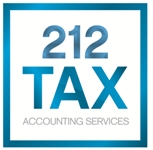Navigating the tax process as a realtor can be complicated. Whether this is your first time filing as self-employed or you’ve been filing this way for many years, there are many unique factors that contribute to determining just how much you’ll owe the IRS each year.
You likely have a lot of questions about the best way to keep costs low as a realtor. Here are some of the most frequently asked questions realtors face each year regarding their taxes.
Should Realtors Lease or Purchase a Car?
If you use your car for real estate purposes, such as driving to and from client meetings, evaluating listings, and other work travel, deciding between leasing and purchasing a car can be very serious. The answer to this question, however, is not black and white.
While the number of real estate agents choosing to lease their car each year is increasing, it’s not always the best option. If you drive more than 17,000 miles per year or are saddled with a high monthly payment, leasing is likely not the best choice for your business. If you don’t rack up a lot of miles and you are comfortable changing cars every three years, leasing might be a good choice for your situation.
Should Realtors File Taxes Quarterly?
As a realtor, you’re considered self-employed for tax purposes. Because of this, you’re responsible for your own estimated tax payments. You are expected to pay both Medicare and Social Security taxes on your own, and if you don’t anticipate these payments throughout the year, you can end up with a large tax bill.
Paying quarterly taxes is recommended for full-time realtors. Not only is paying quarterly taxes a good way to keep end-of-the-year costs low, but you can avoid added fees and penalties from the IRS. Meet with a qualified tax advisor for more information on filing quarterly taxes.
When should realtors form an LLC?
When you’re establishing your own real estate business, you need to ensure you’re protected in the case of bankruptcy or a judgment against you or your business. Creating an LLC or a corporation is an easy way to protect yourself against personal liability. Be sure to speak to an attorney and a CPA about your options.
Can the IRS garnish my commission checks?
If you owe back taxes to the IRS, all of your income is subject to garnishment. It is important to stay on top of your financial situation throughout the year to avoid unexpected bills and fees. If you’re struggling with back taxes or you fear retribution from the IRS, speak to a qualified tax advisor immediately to assess your options. The sooner you contact the IRS or consult with a CPA, the sooner you can get on with your business.
Answering the most common realtor questions.
Being a realtor comes with a lot of unexpected questions ranging from business structure to leasing a car to preparing estimated tax payments. The best thing you can do if you’re confused about your financial situation as a realtor is to consult a tax advisor.
Not only can a tax advisor help you remain in control of your financial situation, they can also consult you on the best practices for your unique situation. Schedule a free consultation today to gain control of your finances as a realtor!


